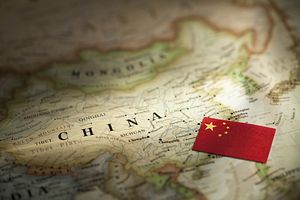Since Japan nationalized the disputed Senkaku/Diaoyu islands in 2012, China has adopted a policy of “reactive assertiveness” on territorial disputes toward its neighbors – seeing their actions as unilateral changes to the status quo and making confident but more or less limited reactions. As Stephen A. Orlins, president of the National Committee on U.S.-China Relations, recently said in an interview with People’s Daily, if we fully analyze the Diaoyu/Senkaku issue and South China Sea disputes, we will find that China indeed is innocent. In each case, the other parties unilaterally changed the status quo first, compelling China to react. Unfortunately the U.S. and some other countries have rejected China’s responses.*
As the current tension drags on, it has also become more confrontational. As Japan takes firm action to lift the ban on collective self-defense, Japanese Prime Minister Shinzo Abe has reopened old wounds by criticizing the issuing of the 1993 Kono Statement, which apologized for the abuse of “comfort women” during World War II. Meanwhile Vietnam’s actions in the South China Sea have been more direct – a number of ships and frogman teams with military background have been dispatched to sabotage China’s oil rig. Plus, waves of anti-Chinese violence have caused injuries and economic losses to a large number of businesses from China, leaving four Chinese citizens beaten to death and hundreds wounded.
For the moment, China faces intensified dual challenges in both the East and South China Seas. There has been a growing coordination between Japan and Vietnam (and the Philippines as well), both of which intend to gain the advantage by joining hands. Given the circumstances, China seems to believe that the strategy and tactics of passive reaction must be swapped out for more comprehensive and more proactive engagement. In particular, China may reconsider its previous aversion to publicizing its territorial disputes with its neighbors in multilateral institutions, which had previously been ruled out due to China’s concern over multilateral intervention.
There are recent signs that China is shifting its position. China’s UN delegation presented the document “The Operation of the HYSY 981 Drilling Rig – Vietnam’s Provocation and China’s Position” to UN Secretary-General Ban Ki-moon, and asked for this document to be circulated among all UN members. Meanwhile, Japan and China are entangled in verbal accusations over some close calls involving aircraft over the East China Sea. In response, China released a video clip which shows that the Japanese F-15 jets flew abnormally close to a Chinese Tu-154, although this may not stop this on-going technical brawl over the exact distances involved.
The point is that as long as the tension endures, China’s “reactive assertiveness” sooner or later must evolve into a more proactive approach. It is still not clear yet whether China has decided to take a more comprehensive or even more risky approach to counter challenges in both the East and South China Seas. However, China does not seem to have much strategic room to maneuver while staying strictly within its preferred bilateral approach to solving territorial disputes. This can also be observed through the PLA’s increasing involvement, especially in the South China Sea disputes. At this moment, China may particularly need a boost from international public opinion.
Although more proactively and more comprehensively publicizing the disputes to the international community may win China a certain degree of understanding or even support, there is also a risk. Such a move may indirectly help to further extend and internationalize the disputes, which is exactly what China has previously expressed concern about. Besides, China also needs to account for a certain preconception in world politics: that a rising state (quite often a great power) will see disputes with its smaller neighbors as opportunities to extend its growing power.
*Update: A representative of Stephen Orlins has told The Diplomat that Orlins was misquoted in the People’s Daily article, and that his position is as follows: “We need to analyze each individual incident to determine which country changed the status quo. In the Diao Yu Islands, Japan clearly changed the 40-year status quo when the Japanese government purchased the islands. China could have defined the change as a minor meaningless change but instead chose to define it as a major change and reacted strongly. Each incident with the Philippines and Vietnam needs to be analyzed but China is not at fault in all of the instances. It has reacted (many would say over-reacted) strongly to what it considers provocations.”

































